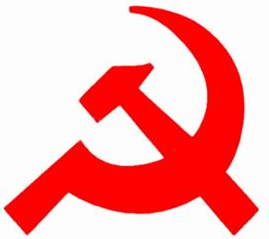On November 26 and 27, a huge historic strike by 250 million workers shook India, while millions of poor peasants began to block access to large cities and especially to the capital New Delhi.
These are not the first manifestations of anger and struggle of workers, unemployed, peasants and employees that shake India and especially in the last period with the coming to power of the BJP (Hindu Nationalist Party). Although the Congress Party which led India to independence succeeded in maintaining an alliance with the popular classes around the big bourgeoisie against a backdrop of significant state intervention in economic life and a position of balance between the USSR and the USA, this policy was shattered many decades ago. Today the BJP and its Prime Minister N. Modi, is including India in capitalist globalization, and at the same time is more and more clearly an ally of the USA against China, while it increases the divisions within the population by a racist and discriminatory policy vis-à-vis non-Hindus. The strike was organized to protest against the dismantling by the N. Modi government of the protective labor laws, the refusal to negotiate an increase in the minimum wage, the increase in unemployment and job insecurity, exorbitant prices, the sale of several public sector units to private entities, the invitation to foreign capital inflow in a large number of sectors, including defense and space, and the refusal to provide income support in a declining economy, which suffered a severe collapse during the recent containment.
According to the Political Bureau of the Communist Party of India (Marxist):“The general strike called by the trade unions have received immense response all across the country. The strike in public sector undertakings were more effective this time than earlier. All the major ports, the steelworks of Vizag, Salem and Bokaro, coal and iron mines, the electricity sector, public transport works, road transport, including truckers [were on strike]; [participated] construction workers, medical and business representatives, IT employee sections, and central and state government employees across the country”. In many regions, the economy was at a complete standstill despite severe repression. Several organizations representing people from other backgrounds, including university professors, students, artists, engineers, doctors, lawyers, women's organizations and others, also supported the call for a strike. Across the country, organizations of street vendors, informal sector workers, construction workers and other sections have also joined the strike.
The success of these mass actions can be explained in a situation where inequalities are widening as a result of a policy entirely in the service of Indian monopoly capitalism. The recent containment has caused immense suffering to workers in the informal sector as they often lost their jobs and the government did nothing to protect them. Hundreds of thousands of migrant workers have been left to fend for themselves, forcing them to return to their remote villages in dire conditions. All of this has made unemployment worse.
Our Revolutionary Party COMMUNISTES brings its internationalist support to the struggle of the workers, the unemployed, the poor peasants of India... for their rights and a better life.


